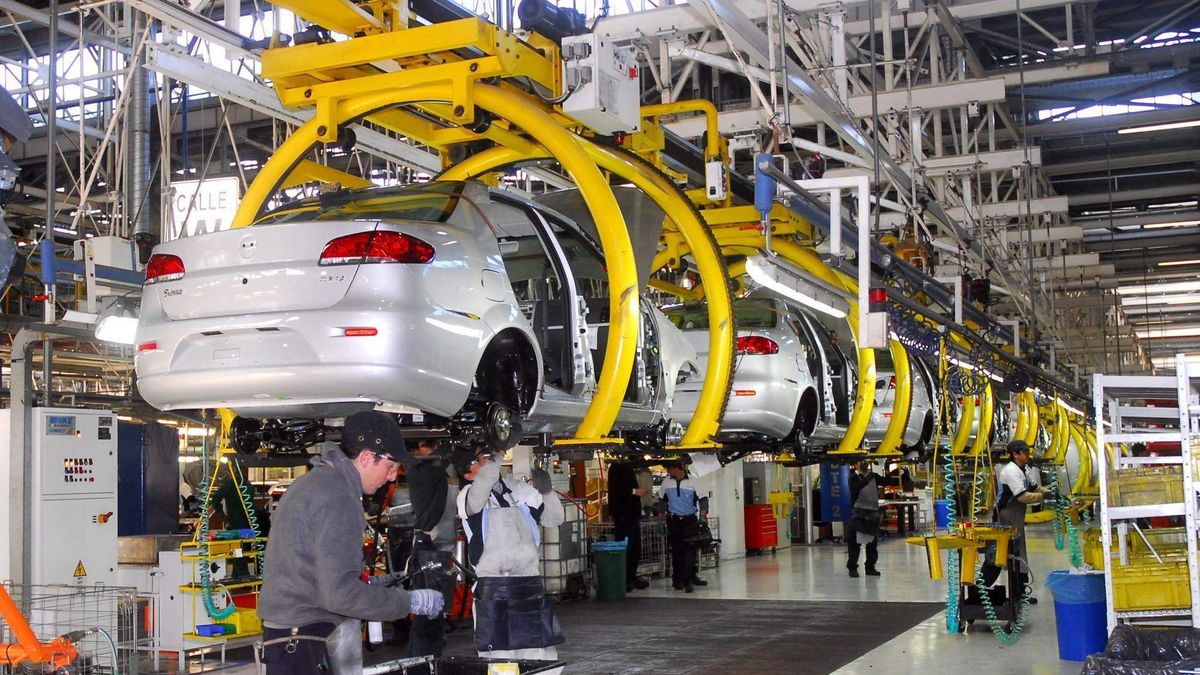Industrial export companies are on alert due to the Government’s intention to increase withholdings to 15% of all tariff positions. They warn of a severe setback resulting from a “double nelson”: on the one hand it is imposed a higher exchange rate for importing inputs than for exporting and on the other hand, the Export rights. Furthermore, the benefits for incremental sales end. The UIA accelerates meetings with the Executive and asks to review sector by sector; In Economy they say that “they are in permanent dialogue” with the sectors and that the measure will be temporary.
“We are going to lose a job of decades“Opening export markets is not something that is done overnight and these fiscal decisions are expensive.” The phrase was told to Ámbito by a businessman in the metallurgical sector, but concern is widespread among exporting firms in different sectors such as automotive, pharmaceuticals and clothing, among others.
The usual effect of a devaluation is an immediate improvement in competitiveness. But despite the exchange rate jump that Argentina experienced weeks ago, that benefit may not be verified in a key sector such as industry. This could happen due to a series of complementary measures that he implemented, and that the Minister of Economy, Luis Caputo, seeks to implement, in order to increase collection.
Firstly, when the Government applied the devaluation, it accompanied it with a general increase in the PAIS tax, which left the exchange rate for importing inputs 17.5% above the official one. Then, the possibility of liquidating 20% of exports in the segment counted with liquidation was announced, but given the reduction of the gap, this incentive was not enough to compensate for the increase in costs.
Manufacturing has an export duty scheme that promotes lower withholdings as products have more added value. Raw materials pay 4.5%, processed inputs 3% and final goods 0%. To the surprise of many industrialists, last week President Javier Milei, who during the campaign promised not to raise or create taxes, sent Congress a bill that includes a general increase in withholdings up to 15%.
According to the economist specialized in productive development, Leandro Mora Alfonsín, These changes “erode the competitiveness of exports”. In that sense, he considered that “both the bases of the economic plan announced by Caputo, as well as the elements that emerge from the DNU and the Bill sent by the Executive have a very marked anti-industrial bias” and anticipated that “the rise in the exchange rate in real terms will be liquefied by inflation this summer.”
The Argentine Industrial Union is getting ready to discuss with the Government. “There are meetings and conversations on the subject of withholdings but we still have no conclusions,” an important leader of the entity told Ámbito. The Ministry of Economy also confirmed the contacts “we are in permanent dialogue and open to listening to different situations,” they said.
Impact on sectors
The transfer to costs of the devaluation will occur at the same time as It is planned to eliminate special regimes for incremental exports, such as automotive exports. They currently pay 0% for each extra car sold abroad compared to the previous year. “She is the double Nelson, they take you up and add you down,” a reference in that value chain told Ámbito.
If the increase in withholdings is confirmed, the terminals expect a decrease in export volumes: “Today we are already uncompetitive compared to our competitors, we export 20% or 25% taxes. Furthermore, we have very few trade agreements with tariff preferences to enter other blocks,” they explained.
The situation will not be easier for the pharmaceutical sector. As these are final goods, they are paying 0% withholdings today. In some cases, companies could go to a loss because international tenders have deadlines and a supply commitment that can extend for two or three years and were carried out under a cost exercise that did not include 15% withholdings.
Laboratories wait several years until their medicines are approved by the health authorities of other countries, which is why they especially need predictability. It is also an area where most of the inputs, such as active ingredients, are dollarized: “We are not going to have a liquefaction in costs and we will lose profitability,” concluded a reference in the area.
The scenario repeats itself to auto parts, clothing, footwear and others. The Government assures that it is an emergency measure and that it will be “transitory.” The industry’s concern lies primarily in the work involved in developing export markets. They are not relationships that are forged overnight.
Source: Ambito




